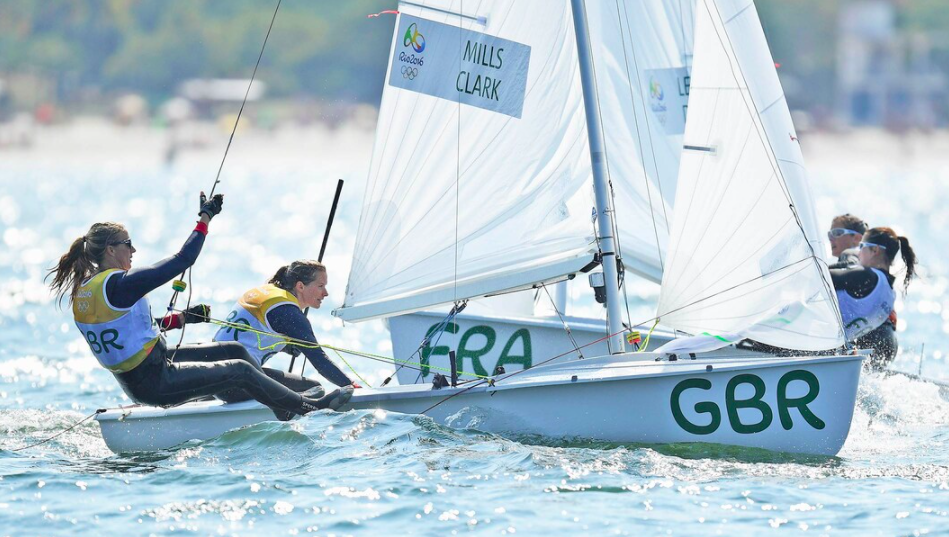Olympic Movement Accelerates Transition to Sustainability

100 IF AND NOC SUSTAINABILITY CASE STUDIES
A significant milestone was reached recently, with the publication of 22 Olympic Movement sustainability case studies, bringing their total to over 100 An IOC-led project launched in 2016, the case studies illustrate how IFs and NOCs are integrating sustainability into their operations and events. By profiling new ways of working, sustainable innovation and effective partnerships, they aim to inspire others to follow suit and accelerate the transition towards sustainable sport across the Olympic Movement.
Speaking at the sixth IOC Sustainability Session which took place at the annual International Federation (IF) Forum earlier this month, Marie Sallois, IOC Director for Corporate and Sustainable Development, said the Olympic Movement is becoming a driving force for sustainability in global sport.
“Five years ago, we asked you if you were interested in embarking with us on the sustainability journey,” she told the 250 representatives online – an increase on some 100 representatives the year before. “Your response to this invitation far exceeded our initial expectations.”
FROM INEQUALITY TO CLIMATE CHANGE
Aimed at the wider global sports community, the case studies highlight the unifying power of sport to drive projects that tackle environmental degradation, climate change, social injustice, gender inequality and other major challenges.
Environmental and footprint reduction initiatives were particularly well represented, showcasing the growing role of partnerships between the public and private sectors, as well as international organisations.
For example, ahead of the Olympic Games Paris 2024, the French Ministry of National Education, Youth and Sport, World Wide Fund for Nature (WWF) France and close to 80 French sporting event organisers have signed up to 15 eco-responsible commitments. The collaboration enables sports federations, event organisers, contractors and regions to organise sustainable events, especially in areas such as catering, waste management and mobility.
World Sailing, at the 2020 Hempel World Cup Series Miami, organised a litter collection, mangrove clean-up, and coral reef restoration action.
Meanwhile, the International Automobile Federation (FIA) has launched an online carbon calculation tool that is specifically adapted to the motorsport industry. The tool will allow partners to calculate their carbon footprint, after which the FIA can help with a carbon reduction plan.
On the gender front, World Rugby launched its strategy to position itself as a global leader on gender equality, where women have the same opportunities on and off the field for representation and participation, at all levels of rugby, by 2025.
The International Cycling Union (UCI) demonstrated how its “UCI Bike City/Region” label has encouraged cities and regions to make bicycles available and accessible to all, including those with lower economic means and physical restrictions.
Each of the case studies aligns with one or more of the IOC’s five sustainability focus areas: infrastructure and natural sites; sourcing and resource management; mobility; workforce; and climate. They also align with one or more of the United Nations’ 17 Sustainable Development Goals (SDGs), which provide a common framework for organisations to explain their contributions to sustainable development and to make the world more sustainable.
“We all need to work together to secure a better future for the planet,” said Raffaele Chiulli, President of the Global Association of International Sports Federations (GAISF). “This is why we are all here today: to collaborate, to share and to learn from each other.”
FROM RESILIENCE TO NET ZERO 2030
The IOC Sustainability Session included a presentation and discussion on the role of sport in building a resilient social, environmental and economic future, led by the Director of the Potsdam Institute for Climate Impact Research, Johan Rockström,
Martin Helseth, a Norwegian Olympic rower and Clean Seas Ambassador, spoke about his crowdfunding campaign to fight against ocean pollution. Showing photographs of vast amounts of litter covering the ocean bed, he stressed that, in today’s world, athletes needed to match their love of sport with care for the environment.
The session also saw the presentation of this year’s Carbon Action Awards of the IOC and Dow, and the publication of a new IUCN-IOC guide to help city officials and sports communities incorporate to the needs of nature in their planning.
But, with the impacts of climate change accelerating, Marie Sallois injected a sense of urgency into the meeting, stressing the urgent need for firm leadership to advance.
“Despite the impressive progress achieved so far across the Olympic Movement, much more and urgent action is needed,” she said. “Especially today, at a time filled with uncertainty and fear, leading by example is key. The future of sport is in our hands.”

